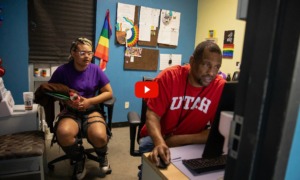The American Legacy Foundation’s spending receives little outside scrutiny. No outside oversight of the foundation is prescribed, even though the foundation’s money comes primarily from the public. The so-called “tobacco courts” that presided over the tobacco cases (including U.S. District Judge Gladys Kessler of Washington, D.C.) oversee the parties to the Master Settlement Agreement and other lawsuits, but they have never had jurisdiction over the foundation, according to William Lieblich, chief deputy counsel of the tobacco project for the National Association of Attorneys General.
[Related Story, The Truth About American Legacy]The foundation’s board of directors is the only governor. Its 11-member composition was dictated under the settlement agreement: Two members each from the National Governors’ Association, the National Conference of State Legislatures and the National Association of Attorneys General comprise the Class A board members.
Class B board members are selected by the Class A board members; one must have expertise in public health, and the remainder must have expertise and experience in either medicine, child psychology or public health. There is a youth liaison who is not a member of the board.
The settlement agreement also calls for the foundation to be “formally affiliated” with a hospital or university. Foundation officials point to affiliations with various hospitals and universities with which they work on research or various programs.
Board chairman Dr. Benjamin Chu, president of Kaiser Permanente for Southern California, did not respond to repeated requests for an interview.
No state governor currently sits on the board, which has two vacancies . Among those who have served on the board of directors are: Gov. Linda Lingle of Hawaii; former Gov. Janet Napolitano of Arizona, now secretary of the U.S. Department of Homeland Security; former Gov. Jon Huntsman Jr. of Utah, now U.S. ambassador to China; and former Gov. Thomas R. Carper of Delaware, who now represents Delaware in the U.S. Senate. Lingle and Huntsman are Republicans, and Napolitano and Carper are Democrats.
One of the few people who pay close attention to the foundation’s financial operations is Michael Siegel, a professor at the School of Public Health of Brown University. Siegel takes issue with the foundation’s unwavering decision not to give grants to anyone or any public health school that receives tobacco money.
On his blog – “The Rest of the Story: Tobacco News Analysis and Commentary,” at http://www.tobaccoanalysis.blogspot.com – Siegel has taken the foundation to task for partnering with the likes of Time Warner, Conde Nast and Hearst, all of which rely heavily on tobacco advertising and “constantly bombard youth” with tobacco ads, and for funding research to bolster its claims of success against smoking.
Siegel doesn’t have any complaint with most of the research the foundation underwrites, but thinks it is “hypocritical not to give money to institutions that are actively seeking money for tobacco programs” on the grounds that they receive tobacco money, considering the fact that the source of the foundation’s money is the settlement from the tobacco companies.
In one of his postings, Siegel upbraided the foundation for allegedly funding a “front group,” Citizens’ Commission to Protect the Truth, to lobby in a lawsuit for more money for American Legacy’s truth campaign.
























